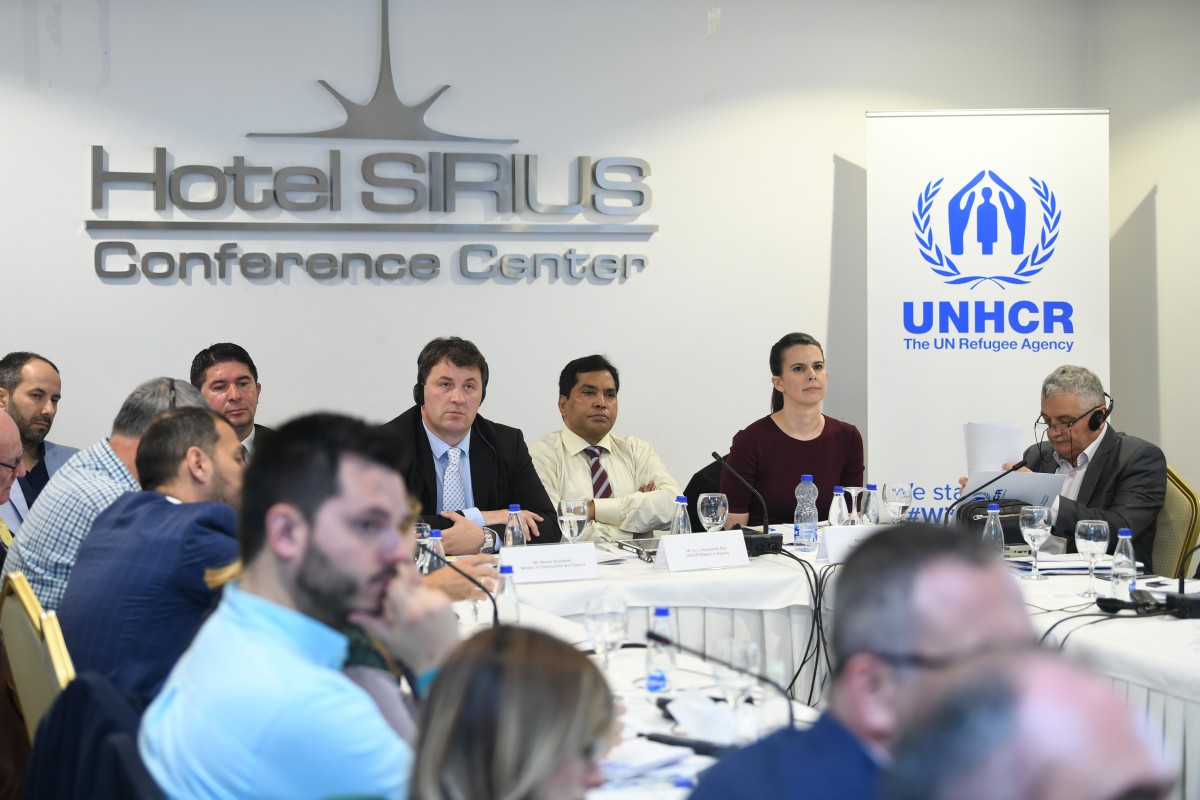UNHCR, together with the Ministry of Communities and Return and the Danish Refugee Council, presented two publications related to the situation of the displaced persons in the region and in Kosovo
UNHCR, the UN Refugee Agency estimates that of those displaced by the conflict that took place between 1998 and 1999 some 90,000 still have displacement-related needs and are awaiting solutions. Of them, 72,000 are estimated to be in Serbia, 16,406 in Kosovo, 729 in Montenegro and 394 in the former Yugoslav Republic of Macedonia. According to the UNHCR, the process of finding durable solutions for this population, whether return to place of origin or integration in the place of refuge, needs to get on track within a conscious timeframe, under the leadership of responsible institutions.
Information about displaced people in the region who are originating from Kosovo
UNHCR, together with the Ministry of Communities and Return and the Danish Refugee Council, presented two publications related to the situation of the displaced persons in the region and in Kosovo.
Based on the results of an assessment by UNHCR and local partners in the region, the report “Displaced persons from Kosovo in the region – a re-assessment of interest to return” aims to provide broad information about displaced people in the region who are originating from Kosovo, and who have already expressed a desire to return.
“The voluntary return and reintegration depends on a number of factors linked to conducive conditions in the location of return in terms of available housing, public services, income generation opportunities, access to property, security and freedom of movement and inter-ethnic relations“, said Narasimha Rao, Chief of UNHCR Mission in Kosovo.
The regional needs assessment exercise was initiated by UNHCR in 2016, prioritizing persons awaiting return to re-evaluate their continued interest to return and the conditions for return. In addition, it reference was made on the displaced persons who for the first time openly expressed interest to return to Kosovo.
In total, 1,414 families (or 4,626 individuals) were interviewed in Serbia, Montenegro and the former Yugoslav Republic of Macedonia. Of that number, 1,268 families (or 4,184 individuals) reconfirmed their interest to return, while 111 families or 377 individuals declared to be no longer interested in returning to Kosovo, but would prefer local integration in the place of displacement. Finally, 35 families or 65 individuals declared to have become undecided in relation to their preferred durable solution location.
Data obtained during the evaluation of needs, as presented in the publication, shall serve the authorities to find the most efficient, sustainable solutions for the displaced in the region and within Kosovo.
Information on the needs of the displaced persons within Kosovo
The second publication titled “Profiling of internally displaced persons in Kosovo” provides information on the needs of the displaced persons within Kosovo, such as access to rights, access to health care, source of income and access to other services.
UNHCR estimates, that some 16,406 displaced people in Kosovo are in need of durable solutions to end their displacement situation. Around 400 individuals still remain in temporary collective shelters. While approximately half of them (some 200 individuals) will receive housing in 2018, the support of the donors is still necessary to ensure housing for the remaining displaced population in collective shelters.
“We all need to join our efforts in advocating for funds to enable those displaced who are willing to return to do so. In this regard, the commitment of municipal authorities to allocate land for returnees who possess no property, is vital”, said Chief of UNHCR Mission in Kosovo.
Nenad Stojčetović, Permanent Secretary of Ministry of Communities and Returns and Kristen Stec, the Danish Refugee Council Representative in Kosovo also addressed the participants during the event.
“The Ministry of Communities and Returns aims to strengthen the process of return through established institutional mechanisms of cooperation with line ministries and other institutional partners at the regional and international level,” said Nenad Stojčetović, Permanent Secretary of the Ministry of Communities and Returns.
“The Profiling process has been a great exercise in collaboration and coordination of many stakeholders focused on data collection, and analysis of the displaced populations and providing us an evidence-based report of the displaced persons situation in Kosovo”, said Kristen Stec, the Danish Refugee Council Representative in Kosovo.
The event was attended by the relevant authorities, international and local organizations, donor representatives and partners.
For more information, please contact:
Shpend Halili, Communications at UNHCR Kosovo
 Search
Search


